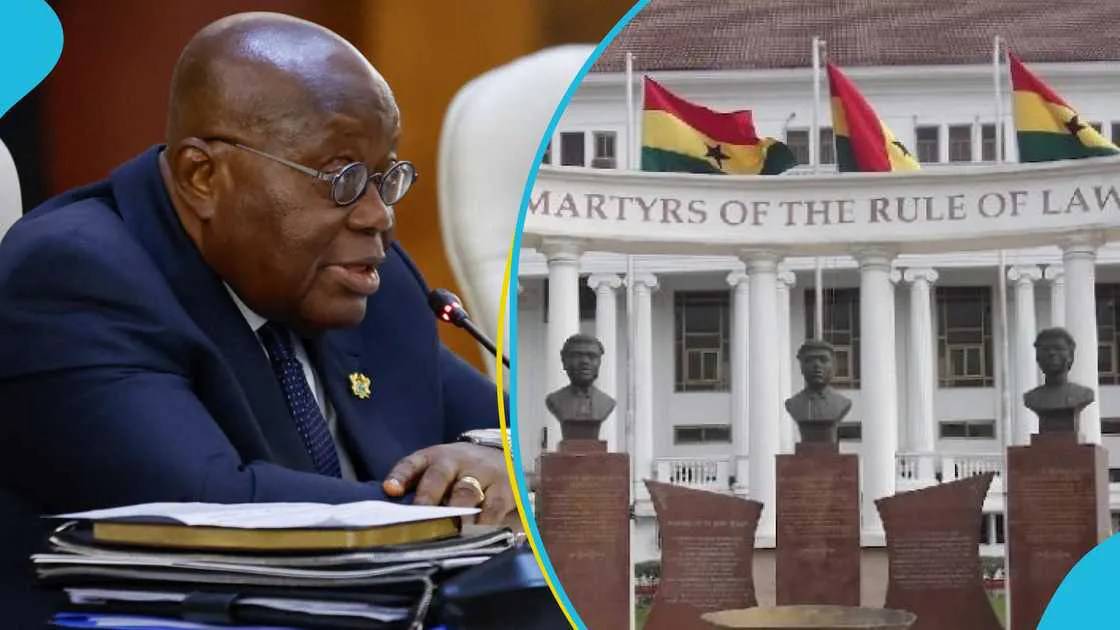The Supreme Court made a groundbreaking decision yesterday, 27 December 2024, addressing the contentious issue of parliamentary election results in some disputed constituencies.
This ruling shed light on several key legal concepts, providing clarity on Ghana's electoral process and emphasizing the importance of fairness, transparency, and accountability.
Some 11 Key aspects of the Supreme Court's ruling are as follows:
1. Mandamus: A Court Order Directing Official Action-
A mandamus is a court order directing a public official or body to perform a specific duty or act. In this case, the High Court ordered the Electoral Commission (EC) to re-count parliamentary election results in nine disputed constituencies. However, the Supreme Court overturned this decision, deeming it inappropriate due to the flawed re-collation process.
2. Quash: Canceling a Decision or Proceeding-
The Supreme Court canceled the re-counted results for Okaikwei Central, Ablekuma North, Tema Central, and Techiman South, effectively ending the EC's re-collation process in these constituencies. This decision was made due to procedural errors and lack of fairness in the re-collation process.
3. Violated Right: Infringement of Constitutional Rights-
The National Democratic Congress (NDC) argued that the EC's re-collation process violated their right to a fair and transparent electoral process. The Supreme Court acknowledged these concerns, emphasizing the importance of upholding the rights of all parties involved in the electoral process.
4. Upheld: Confirming a Decision or Ruling-
The Supreme Court confirmed the original election results in some constituencies, while canceling the re-counted results in others. This decision demonstrates the court's commitment to ensuring the integrity and accuracy of the electoral process.
5. Results Re-collation: Re-Counting/Re-Compiling Results-
The EC's re-collation process in the disputed constituencies was challenged by the NDC and ultimately canceled by the Supreme Court. The court found that the re-collation process was flawed, lacking fairness and transparency.
6. Procedural Error: Mistakes in the Legal Process-
The Supreme Court found that the EC committed procedural errors during the re-collation process, leading to the cancellation of the results. These errors included lack of transparency, inadequate notice to parties, and failure to follow established procedures.
7. Procedural Fairness: Ensuring Fairness and Transparency-
The NDC argued that the EC's re-collation process lacked fairness, leading to the Supreme Court's decision to cancel the results. The court emphasized the importance of fairness in ensuring the integrity of the electoral process.
8. Application for Joinder: Joining Related Cases or Parties-
It's unclear whether the NDC filed an application to join related cases or claims together, or to add new parties to the existing case.
9. Friend of the Court (Amicus Curiae): Providing Expert Opinion-
Lawyer Edudzi Tamakloe of the NDC was mentioned as a friend of the court during the High Court proceedings, providing expert opinion but not as a party to the case.
10. Bias: Prejudice or Unfairness Towards a Particular Outcome-
The NDC alleged that the EC's re-collation process was biased in favor of the New Patriotic Party (NPP), which the Supreme Court's ruling appeared to address.
11. Overstepped Jurisdiction: Exceeding Legal Authority-
The NDC argued that the High Court exceeded its authority in granting the mandamus application, which the Supreme Court's ruling effectively corrected.
In summary, the Supreme Court's landmark ruling addressed several key legal concepts, providing clarity on Ghana's electoral process and emphasizing the importance of fairness, transparency, and accountability.


